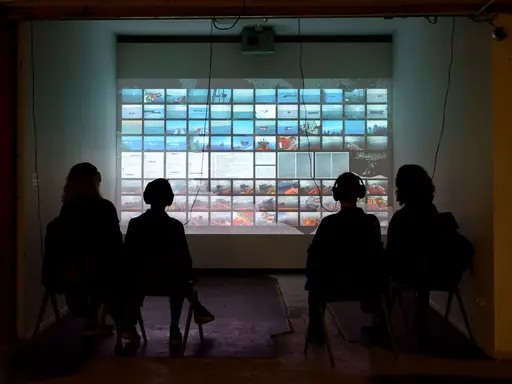
until 15 April 2019
Course: Art and Politics March 2019
From 11 March until 15 April 2019, BAK organizes the course Art and Politics. A six-week course on the relations between contemporary art and the political
In six weekly sessions, the participants learn about how contemporary art relates to the political in an accessible way. The course zooms in on the historical period starting with the pivotal year 1989 to today. The sessions are based on an in-depth analysis of concrete works of art, supported by readings of texts on contemporary art and its intrinsic links to present-day society and politics.
The course is taught by Maria Hlavajova, BAK’s general and artistic director.
The case studies and examples of art works are mainly from BAK’s renowned international projects Propositions for Non-Fascist Living (2017–ongoing), Former West (2008–2016), and Future Vocabularies (2013–2016), and include works by artists such as Tania Bruguera, Matthijs de Bruijne, Forensic Architecture, Aernout Mik, Rabih Mroué, Christoph Schlingensief, Jonas Staal, Hito Steyerl, and others.
Each sequence of the course provides clear insights into selected artistic practices in order to highlight larger trends and developments in the contemporary art field. The course addresses the changing understanding of artistic production today, as well as of the notion of the public and art institutions. Simultaneously, the course helps participants to familiarize themselves with main concepts and the most urgent questions at the heart of art and politics.
Participating in the course is open to all concerned with the question as to what art can do in times like ours. Prior knowledge or experience in the subject matter is not required.
The course is taught by Maria Hlavajova, BAK’s general and artistic director.
The case studies and examples of art works are mainly from BAK’s renowned international projects Propositions for Non-Fascist Living (2017–ongoing), Former West (2008–2016), and Future Vocabularies (2013–2016), and include works by artists such as Tania Bruguera, Matthijs de Bruijne, Forensic Architecture, Aernout Mik, Rabih Mroué, Christoph Schlingensief, Jonas Staal, Hito Steyerl, and others.
Each sequence of the course provides clear insights into selected artistic practices in order to highlight larger trends and developments in the contemporary art field. The course addresses the changing understanding of artistic production today, as well as of the notion of the public and art institutions. Simultaneously, the course helps participants to familiarize themselves with main concepts and the most urgent questions at the heart of art and politics.
Participating in the course is open to all concerned with the question as to what art can do in times like ours. Prior knowledge or experience in the subject matter is not required.